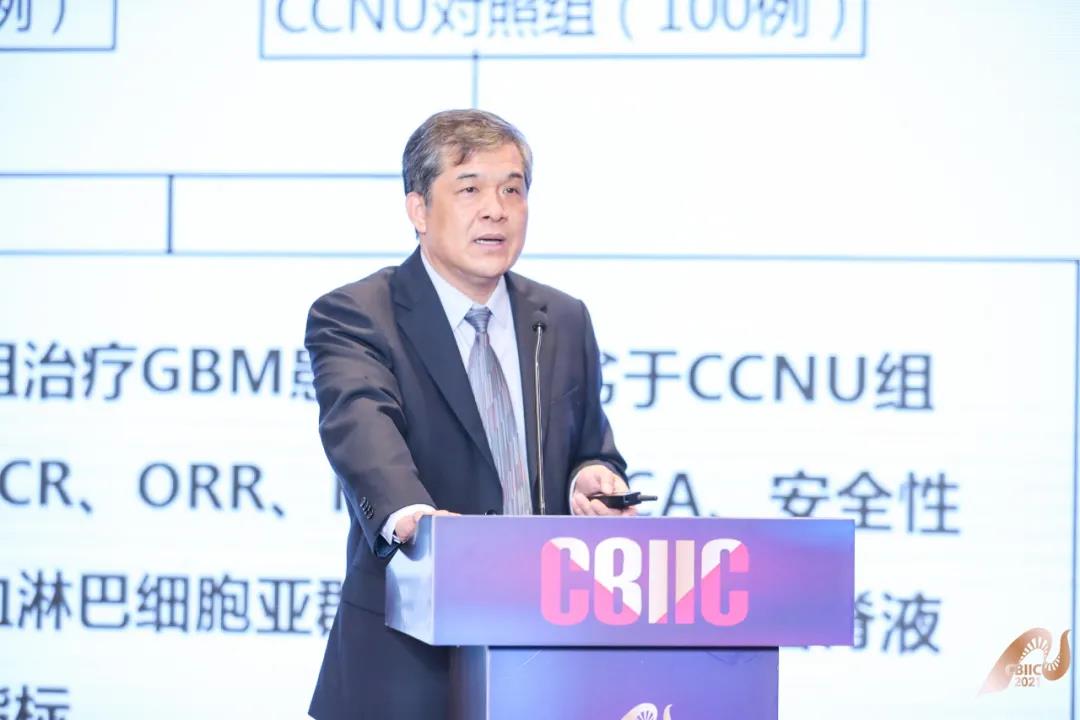Jiuzhang Biotech Participated in the 6th China Venture Capital Conference and Announced the Results of Phase Ⅱ Clinical Trials
On September 25, 2021, the highly anticipated 6th "China Pharmaceutical Innovation and Investment Conference" was successfully held in Suzhou. The Global Premiere of Clinical Data Session (hereinafter referred to as the "Clinical Premiere Session"), as a star session of the conference, has been held for six consecutive years. Since its preparation, it has attracted widespread attention from all sectors, and it is often difficult to find a seat at the presentation site. This year, nine new drugs under research and on the market made stunning appearances, and the key clinical data of various phases were disclosed to the public for the first time. The projects covered the latest R&D progress of innovative drugs for diseases such as glioblastoma, nasopharyngeal carcinoma, infantile rotavirus infection, diabetes, and alopecia areata, receiving extensive attention and acclaim from professionals in the investment and pharmaceutical industries attending the conference. At this venture capital conference, our company reported on the discovery process of the target of CHA and the progress of the Phase I/II clinical trials for the treatment of recurrent glioblastoma.
Glioma is the most common primary malignant tumor of the central nervous system. Glioblastoma with a WHO grade of IV has the highest degree of malignancy and the worst prognosis, accounting for about 46% of all gliomas. According to literature reports, the median survival time of newly diagnosed glioblastoma patients is only 14.6 months, and that of patients with first recurrence of glioblastoma is only 7 - 9 months. The current standard treatment regimen is surgery + concurrent chemoradiotherapy after surgery + adjuvant chemotherapy with temozolomide. There is only one first-line treatment drug, temozolomide. Patients who are resistant to temozolomide or have tumor recurrence often face a dilemma of having no available drugs. As a class of innovative drugs for the treatment of glioma, "CHA" has attracted widespread attention in the industry since its advent.

Presenter: Li Wenbin, Director of the Comprehensive Tumor Treatment Center of Beijing Tiantan Hospital Affiliated to Capital Medical University
Director Li Wenbin of the Comprehensive Tumor Treatment Center of Beijing Tiantan Hospital Affiliated to Capital Medical University presented the "Progress Report on Phase I/II Clinical Trials of CHA for Injection in the Treatment of Recurrent Glioblastoma". The Phase I trial showed that CHA has good safety, good tolerability and a high benefit rate. The follow-up results of the Phase I subjects showed that at a dose of 3mg/kg (n = 9), the median overall survival (OS) of the 9 patients after treatment was 21.3 months, which is much higher than the overall survival reported in the literature. In addition, Director Li also introduced the patient enrollment status, baseline characteristics of the subjects and some results of the Phase II clinical trial. Currently, 52 patients have been enrolled in the CHA group and 52 patients in the CCNU control group. The treatment efficacy (overall survival after treatment) of the subjects in both groups is far beyond the median survival of conventional treatment. The expected median OS of the subjects in the CHA group has shown a significant advantage compared with that of the CCNU control group. The results of the Phase II clinical trial indicate that: the survival time of the patients in the CHA group, including OS after diagnosis, OS after recurrence, OS after treatment and progression-free survival (PFS), are all non-inferior to those in the CCNU group, and many of these are longer than those in previous clinical studies. In addition, the adverse reactions in the CHA group are all induration at the injection site, and the incidence rate of severe adverse reactions is only 6%. However, 67% of the patients in the CCNU group have thrombocytopenia, 44% have leukopenia, and the incidence rate of severe adverse reactions reaches 50%. In conclusion, the treatment effect of CHA is satisfactory, and its safety and tolerability are relatively remarkable.


